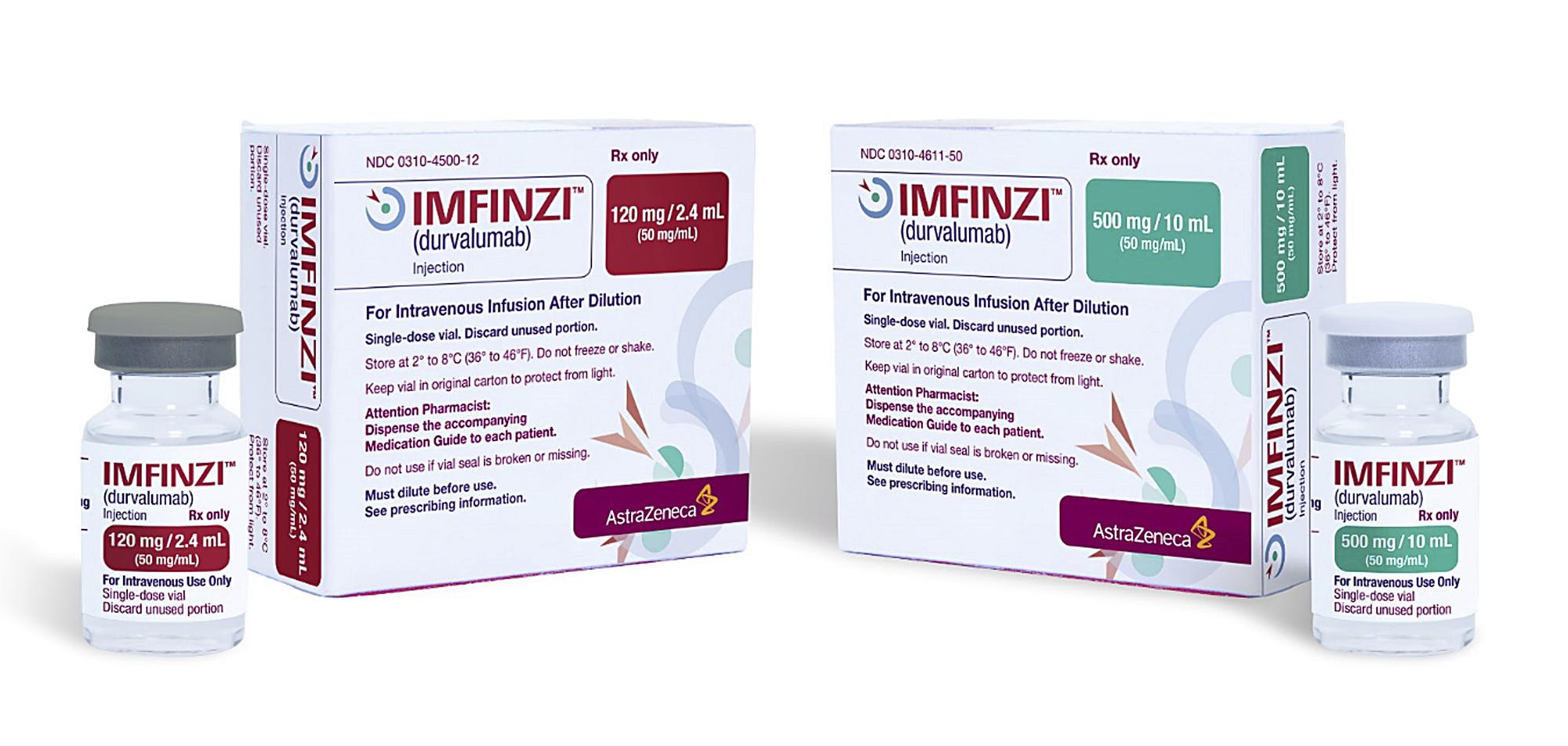AZ takes aim at BMS' lead in neoadjuvant NSCLC

Just weeks after Bristol-Myers Squibb claimed an FDA green light for Opdivo as a neoadjuvant therapy for non-small cell lung cancer, AstraZeneca is looking to encroach on its territory.
Top-line results from the AEGEAN trial of AZ's PD-L1 inhibitor Imfinzi (durvalumab) plus chemotherapy given pre-surgery for resectable NSCLC tumours have revealed a significant improvement in the pathologic complete response (pCR) rate compared to chemo alone.
AZ said it would share the interim data from the study with regulators as it continues to follow-up patients to the additional primary endpoint of event-free survival (EFS) – currently still blinded.
If the results are strong enough to secure approval, Imfinzi has the opportunity to muscle in on the recent green light for Opdivo (nivolumab) in neoadjuvant NSCLC, one of the few immunotherapy areas in this form of cancer not dominated by Merck & Co's rival Keytruda (pembrolizumab).
Up to 30% of all patients with NSCLC are diagnosed early enough to have surgery with the hope of a cure, with Opdivo now an option to shrink tumours before they are removed and reduce the risk of them returning later.
While the aim of surgery in these patients is curative, between a third and half of them experience a recurrence and need additional lines of treatment.
Opdivo's approval came on the back of the CheckMate-816 study, which showed that the combination of Opdivo and chemo significantly improved EFS, with a 37% reduction in the risk of progression, recurrence or death compared to chemo alone.
The benefit was seen regardless of levels of the biomarker PD-L1, making Opdivo an option for all people with resectable NSCLC without testing. AEGEAN also included an all-comer PD-L1 population, so will be a direct competitor to Opdivo if the top-line data are backed up by late readouts.
"Treating resectable lung cancer early provides the best chance for a cure, yet lung cancer will still recur within five years for the majority of patients despite chemotherapy and successful surgery," said AZ' head of oncology R&D Susan Galbraith.
"Engaging the immune response with Imfinzi both before and after surgery is an exciting new strategy, and we hope these early findings from AEGEAN will lead to improved survival for lung cancer patients in this potentially curative setting."
Keytruda has been the top PD-1/PD-L1 drug in NSCLC for years, based mainly on its role in first-line therapy for more advanced cases, but Merck's rivals have been quicker to move into the neoadjuvant and adjuvant settings.
Last October, Roche's PD-L1 inhibitor Tecentriq (atezolizumab) became the first drug in the class to be approved by the FDA as adjuvant treatment after surgery and platinum-based chemotherapy in patients with NSCLC tumours in which 1% or more cells express the PD-L1 biomarker.













